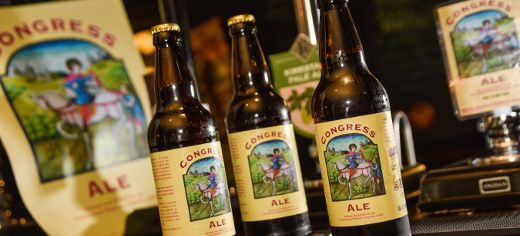
Jousting knights, feasting musicians, food demonstrators and artists will descend on Leeds from 3-7 July.
The University of Leeds is hosting the 23rd International Medieval Congress (IMC), Europe’s largest annual conference for researchers in medieval studies.
Organised by the Institute for Medieval Studies at the University, more than 2,200 researchers will gather on campus.
There are over 500 available sessions of academic papers, trips to local medieval sites and a host of activities such as feasts and performances, alongside a wide range of public events.
This year’s focus is on ‘Food, Feast and Famine’.
Over 180 sessions will focus on this theme, covering topics from medieval cookbooks to the importance of ale in Viking life and famous poisonings in the Middle Ages.
Cooking demonstrations will also take place from Monday to Thursday using medieval techniques and equipment.
Delegates and visitors will be able to learn about spices in medieval food, churn their own butter and try their hands at making sweets and bread in a medieval oven.
IMC kicks off on Sunday 3 July with trips to Skipton Castle and Fountains Abbey, as well as a pottery workshop run by local Yorkshire potter Lee Steele and an opportunity to try medieval chanting based on 14th-century manuscripts.
In Leeds, IMC is also hosting the public event ‘Medieval Day at the Museum’.
From 12-3pm there will be chances to try crafts and activities including book-binding, writing with quill and ink and medieval games.
University of Leeds professor Catherine Karkov will then give a talk that delves into the history of the West Yorkshire and Staffordshire Hoards. Both treasure hoards are currently on display in Leeds.
Axel Müller, Director of the IMC, said: ‘Food is an indispensable part of our life, and that of anyone who lived in the past. Today we are grappling with how food travels, how it gets preserved, how finite amounts can feed increasing populations.
The Middle Ages faced similar challenges. It is often assumed that the Medieval period was a period of malnutrition and poverty. This Congress shows it that the world then was very multifaceted, and that good food and plenty of spices could be found in many quarters.
Further information
For events open to the public and to IMC delegates, visit the IMC website.
Follow the IMC on Facebook (Institute for Medieval Studies - University of Leeds) and Twitter @IMC_Leeds.
For media enquiries, contact pressoffice@leeds.ac.uk or call 0113 343 4031